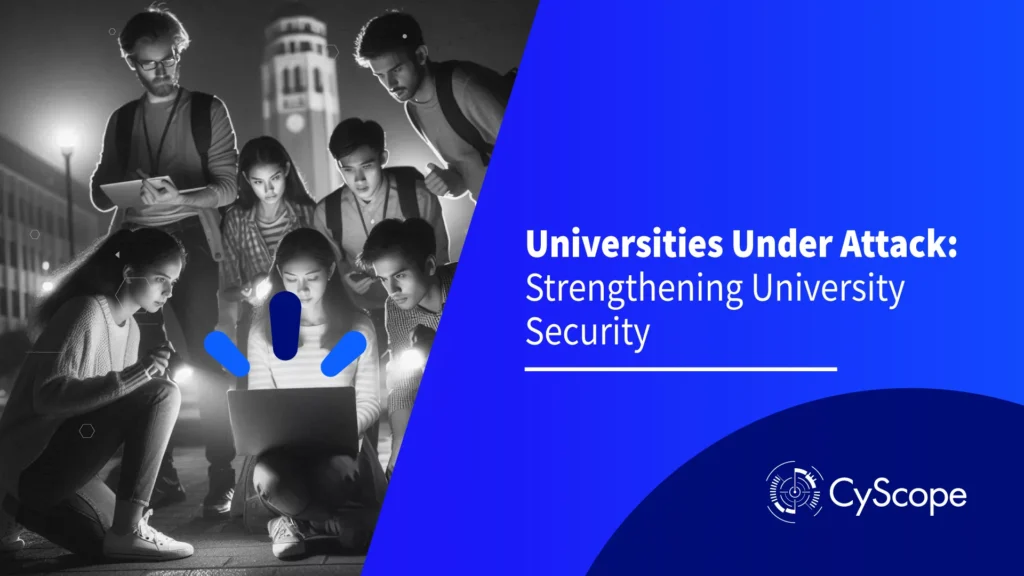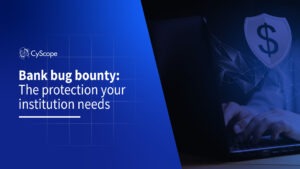Universities have emerged as prime targets for cyber-attacks. With vast amounts of sensitive data and an ever-expanding digital infrastructure, these educational institutions are facing increasing threats that put their university security at risk. From data theft to service disruptions, attacks on universities not only compromise critical information, but also affect their reputation and the trust of students, staff, and partners.
In this article, we will explore some of the most notorious cases of universities that have been attacked and how these incidents have impacted their operations. In addition, we will present how our PTaaS (Pentesting-as-a-Service) services and Bug Bounty programs, backed by an expert community of ethical hackers and an all-in-one platform, can help educational institutions protect against these emerging threats.
Read more: What is OWASP and why is it essential for your company?
Universities targeted by cybercriminals
1. University of California, San Francisco (UCSF)
In 2020, the University of California, San Francisco (UCSF), was the victim of a ransomware attack that severely affected its operations. The attackers demanded a ransom of more than $1 million in exchange for unlocking the encrypted systems. UCSF, known for its cutting-edge research in medicine, was forced to pay to regain access to critical data. This attack not only disrupted its academic and research activities, but also exposed the vulnerability of its university security infrastructure.
Impact: The disruption to research work, potential loss of valuable data, and damage to the university’s reputation highlighted the urgent need for a robust cybersecurity strategy.
2. University of Maastricht, The Netherlands
Maastricht University was another shocking example of how a cyberattack can cripple an institution. In 2019, it was hit by ransomware that affected almost all of its systems, including emails, files, and databases. The attack forced the university to suspend operations for several days and pay a ransom of 30 bitcoins to recover its data.
Impact: This incident underscored the importance of proactive university security measures, such as early detection of vulnerabilities and rapid responses to incidents.
3. University of British Columbia (UBC), Canada
In 2021, the University of British Columbia (UBC) suffered a phishing attack targeting its students and staff. The attackers managed to steal credentials and access internal systems, leading to the exposure of personal and financial information. Although the university quickly implemented containment measures, the attack highlighted the need for better security awareness among the university community.
Impact: In addition to the breach of sensitive data, this attack affected students and staff confidence in the university’s security measures, leading to an increased demand for robust and proactive solutions.
How CyScope can improve university security
Given these examples, it is clear that universities are not immune to cyber-attacks. Protecting the data and systems of these institutions must be a priority, not only to safeguard their reputation, but also to ensure the continuity of their operations. This is where CyScope comes in with a comprehensive solution:
PTaaS (Pentesting-as-a-Service): Our PTaaS service provides regular, customized penetration testing to identify vulnerabilities in a university’s digital infrastructure before attackers can exploit them. With detailed reports and security recommendations, we help universities fortify their cyber defense.
Bug Bounty Programs: We offer Bug Bounty programs where our community of highly trained, ethical hackers are tasked with finding and reporting vulnerabilities in exchange for rewards. This collaborative approach not only enhances university security, but also allows institutions to benefit from a global network of cybersecurity experts.
All-in-one platform: Our platform combines the efficiency of PTaaS and Bug Bounty programs, allowing universities to manage their cybersecurity needs in one place. With intuitive dashboards and real-time alerts, the university IT team can stay on top of threats and deployed solutions.
You might also be interested: Cybersecurity in universities: How to fend off cyberattacks?
Conclusion: Protecting university security is a must.
Cyber-attacks on universities are not just a passing problem; they represent a real and ongoing threat that affects not only the day-to-day operation, but also the reputation and trust of the entire educational community. Academic institutions must take a proactive and collaborative approach to protect against these threats.
Our PTaaS and Bug Bounty services, supported by an expert community of ethical hackers and our all-in-one platform, are designed to provide the protection universities need to meet these challenges.
Are you ready to strengthen your university’s security? Contact us or schedule your demo and find out how our services can help your institution stay one step ahead of cybercriminals. Don’t leave university security to chance!





